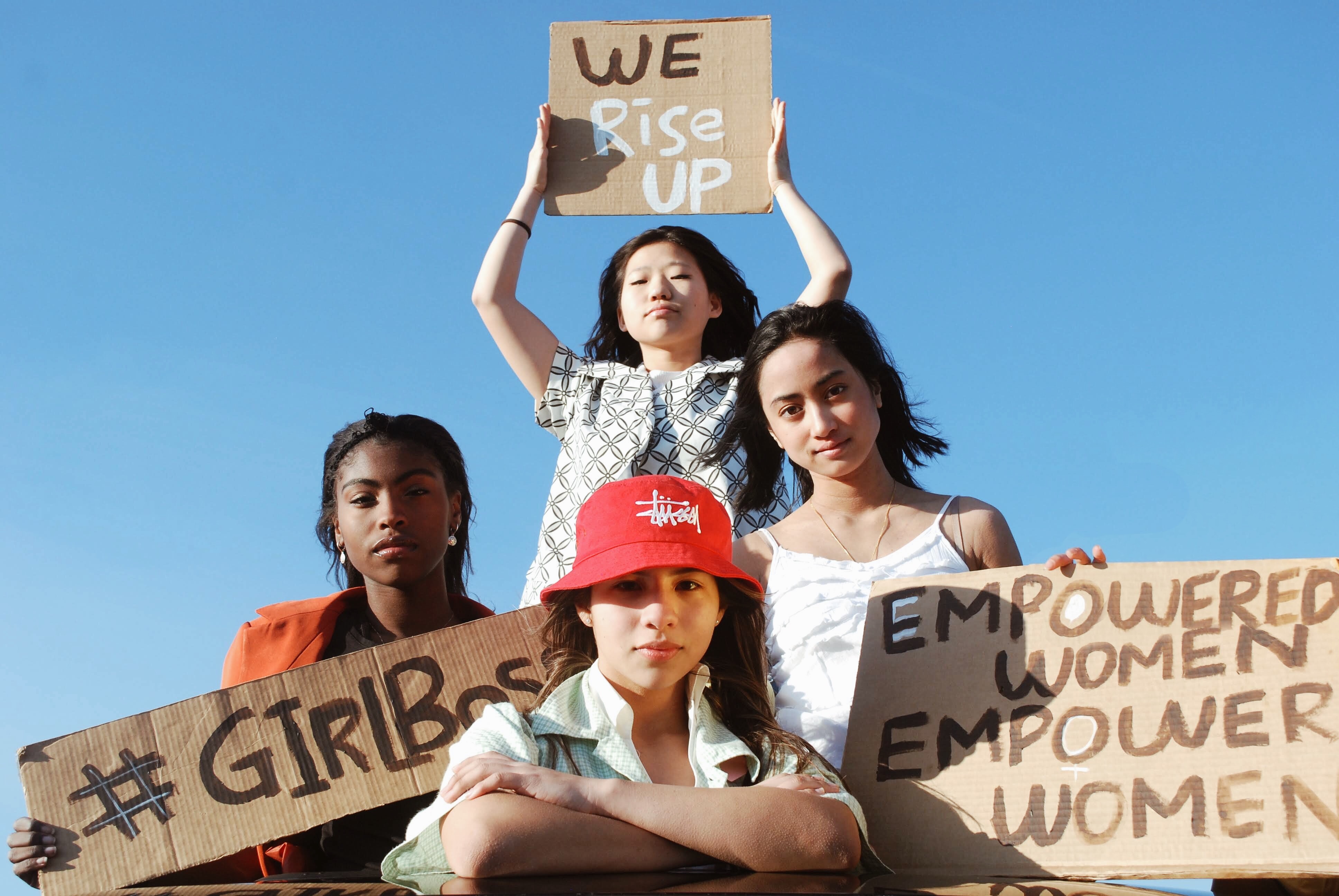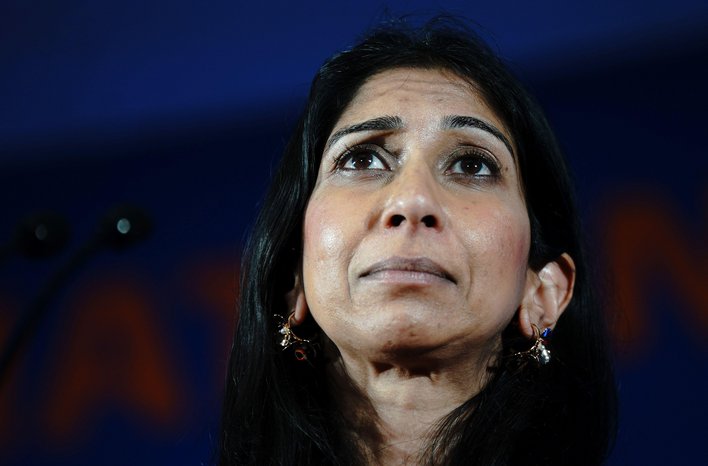Speech therapy leaves too many Black voices silent
94% of speech and language therapists are white, which means Black and ethnic minority patients are missing out on the cultural nuances that can be vital in treatment.
Language is a key part of our identity and how we communicate with one another. In order for a conversation to be successful, understanding is essential and that includes comprehending cultural identity, regardless of whether the conversational parties speak the same official language. This means it’s especially important for professionals providing language-related treatment to have a diverse range of backgrounds and life experiences - but therapists working in the UK are overwhelmingly homogenous.
Speech and Language Therapy [SLT] is a health field that specialises in treating children and adults who have “difficulties with communication, eating, drinking and swallowing” according to the NHS website. This includes people who stutter, recovering from a stroke and children with delayed speech.
“The majority of white speech and language therapists know nothing about the cultural identity of Black languaging"
But the profession’s foundations and consequent culture are overwhelmingly led by white women. Statistics from a 2020 UK study by Health and Care Professionals Council [HCPC] highlighted that white Speech Language Therapists make up a staggering 93.4% of the workforce. Asians make up 3.5% and Black people come trailing last at just 1.3% of therapists. Additionally, 94.8% of therapists are women, according to this same study.
“The majority of white speech and language therapists know nothing about the cultural identity of Black languaging and so if they assessed a child, they would say they have a disorder,” says Warda Farah - a Black speech and language therapist with over a decade of experience in the field. “There’s no real consideration of ethnic minorities. It’s only now that we’re talking about diversity, but that diversity is not creating things that are actually for Black people,” she adds.
Now, Farah is considering leaving the profession for good because of her experiences, revealing that she has even had suicidal thoughts due to what she has been through. “It’s my real life and it made me not want to be here anymore,” she admits as tears form in her eyes and her tone of voice changes from confident to withered. “It made me so angry to think that I’m trying to be free and I don’t know where to go to be free.”
Farah, who is also a scholarly writer who specialises in linguistic discrimination in relation to anti-Blackness and author of the upcoming book White System, Black Therapist, recently shared on Twitter that a speech and language therapist made a podcast episode (now deleted) directed towards her. In the episode, titled “A podcast directed at one single SLT”, the therapist criticised Warda’s passion for tackling racism in the field. “He used words like dangerous, said I put the profession into disrepute, I’ve got limited experience… He’s talking very personally and unprofessionally,” Farah tells us.
She brought the issue to the attention of the RCSLT and HCPC, but says she received little help in the matter. The case took about a year to go to the panel and Farah said it was concluded with “there was no cause for concern” in relation to the comments made.
As Farah is outspoken about inequality in the profession, other social media users have reported her and she was consequently investigated by the HCPC.. “I got an email saying I was being investigated,” she says. “It said I’ve got inappropriate social media and I was thinking ‘what is inappropriate?’ So because I talk about racism and ableism, they investigated me.” This investigation by the HCPC concluded that: “It is understood that the registrant’s [Farah’s] views may not align with other members of the profession. However, it is not the role of the HCPC to moderate critical analysis and discussion of the profession by registrants. Registrants are not expected to hold uniform socio-political opinions or to refrain from expressing their views on how important societal issues inflect on their profession.”
Breaking down what racism can look like from SLTs, Farah shares: "Sometimes white SLTs and other allied health professionals can be racist. However, because they are in the helping profession it’s almost assumed that they couldn’t possibly be racist. Often the racism is nuanced and hidden in polite language. They feel because they haven’t used offensive expletives that it can’t be racist and that is the issue reading the subtext of what they are saying and the impact it has on racialised people. I’ve experienced racism, but because someone hasn’t called me the n-word, it’s been okay.” Farah continues: “A lot of the policies and guidelines [in SLT] are about not being racist or inappropriate to a member of the public. But there are no guidelines on a colleague-to-colleague basis”
The HCPC didn’t respond to my request for comment, but the RCSLT chief executive said: “The RCSLT is actively anti-racist. We don’t comment on individual member issues. As the professional body for speech and language therapy in the UK, we provide our members with guidance, training and networking opportunities. The RCSLT advises its members to contact the HCPC, the regulatory body in the UK, if they feel they’re the target of racist or discriminatory behaviour.”
"Diversity leads to better outcomes because you will have therapists who will understand the structure of certain communities"
Farah tells me she gets “hundreds of emails” from other professionals who experience racism in SLT and have even left the field due to racism but feel discouraged to speak out as candidly as she does.
In 2020, with the rise of the Black Lives Matter movement, there was a growing demand for diversity within SLT to be addressed. The Royal College of Speech and Language Therapists (RCSLT) released a report in February 2023 that analysed diversity in Speech and Language Therapy. Some of the key findings from this study highlighted that speech and language therapists did not feel confident that there are diverse recruitment opportunities for ethnic minorities in the profession. The study also showed that although many students training to be SLTs felt their curriculum does prioritise developing the knowledge and skills to meet the needs of a diverse population, ethnic minority students were less confident about this compared to white students.
This sentiment is echoed through Lydia Adebajo, who was an SLT patient between the ages 8-10-years-old. Adebajo, who was taught by a white female therapist, said she stopped because, although she did learn some breathing exercises from this course, overall she “didn’t find it useful”.
“There was a lack of cultural nuances as my speech therapists were mainly white women who never stuttered so I didn't feel as though they knew what they were doing as they applied their academic practices to treat patients,” she explains. “It would have been better if there was a variety of SLTs that were of colour and had speech impediments.” Adebajo also picked up that during her time as an SLT patient, she did not see any Black therapists.
Next steps
As part of a plan to diversify the profession, in January 2022 RCSLT produced a podcast with the online community, SLTs of Colour. The RCSLT's chair at the time, Mary Heritage, said in the episode that learning about the RCSLT members' experiences of the profession was a “very horrible surprise to a lot of us”. Heritage continued: “I think we had a blindspot to that part of the issue”. I reached out to RCSLT for an update on what they are doing to work towards diversity in the profession. The new chair, Dr Sean Pert, responded with a statement that read: “A new Nominations Committee has been created to lead on all Board and Committee appointments.”
He continued, “We’ve created safe discussion spaces, as well as opportunities for minority ethnic members to be more visible. We’ve developed new careers promotion resources which feature stories from members from different backgrounds. Along with strengthening our long-standing clinical guidance to ensure that culturally appropriate practice and care are embedded into everyday practice.”
"I’ve walked into a room for an ethnic minority patient and there was a sense of warming when they recognised I was a Black therapist"
Dorett Davis, a Black SLT who has been in the profession since the late 1980s, shared her experiences of college on the podcast with the RCSLT. When filling in college applications, she expressed her desire to be an SLT and her college lecturer told her she would need to speak "good English" to become an SLT. “Baring in mind I was in her A-Level English class getting good grades, I was somewhat taken aback by that comment” Davis shared. “That left me feeling warm and cuddly,” she added sarcastically.
Davis is also the co-founder of SLTs of Colour. I had a Zoom meeting with Davis where she explained more about the structure of the SLT practice: “It comes from an incredibly privileged concept and construct and therefore those blindspots are carried throughout the culture.”
Speaking on one of the reasons ethnic minorities may not join SLT, Davis added that on top of the profession itself not being very well known, the roots to enter SLT have traditionally been limited. “Until recently, one of the things you had to do was to observe an SLT working to know what it was and so then as a Black person, how do you find somebody in order to get that experience that you can put on your application form?” she asks. “Then of course there’s the selection process through interviews. I think some of that probably had an unconscious bias.”
Davis also explained the element of racism that some students on placements have experienced, which is supported by a report from April this year by The Council of Deans of Health. The report, which looked into 14 UK universities, found that students felt there was a lack of support on practice placement in comparison to the support they got within the university grounds. A quote from within the report from an AHP student reads: “My friend felt she couldn’t speak to her lecturers when she experienced racial discrimination on placement.’’
Speaking on the positive experiences of having SLTs from diverse backgrounds, Davis said: “I’ve had experiences when I’ve walked into a room for an ethnic minority patient and there was a sense of warming when they recognised I was a Black therapist in that maybe you just might connect. Diversity leads to better outcomes because you will have therapists who will understand the structure of certain communities and can share that with their colleagues.”
The Lead is now on Substack.
Become a Member, and get our most groundbreaking content first. Become a Founder, and join the newsroom’s internal conversation - meet the writers, the editors and more.





